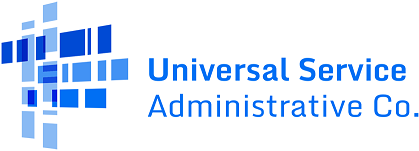Record Keeping
Service providers are required to confirm an applicant’s eligibility prior to enrolling them in the Lifeline program, and document their compliance with all FCC and state requirements.
Documents to Retain
Establish a procedure to retain the documentation that was used to support the initial eligibility determination for the subscriber, regardless of the method used. At a minimum, service providers should keep:
- Signed, completed certification (application) form
- Signed, completed household worksheet (if applicable)
- Eligibility determination source, for example:
- If querying a database: Name of the data source used, and a copy of the results of the database query
- If receiving confirmation from a state agency: A copy of the state’s eligibility determination results
- If reviewing an applicant’s documentation: Type of eligibility documentation used, and a copy of the customer-provided proof of eligibility
The documentation should include enough information to show compliance with all FCC and state requirements. See the documentation checklist, the itemized list below, and the Lifeline Common Audit Findings page for more information.
Documentation Retention Period
Retain documentation for as long as the subscriber receives Lifeline service from the service provider, but for no less than the three full preceding calendar years.
Keep a Copy of Customer-Provided Proof of Eligibility
Service providers are required to retain the documentation used to demonstrate subscriber eligibility (for example, a copy of the customer’s SNAP card).
Prior to February 17, 2016, carriers had to keep records of the data source used to verify eligibility, but were not permitted retain copies of the documentation itself.
Application/Certification Form
Below is a list of the program requirements for the certification form. Service providers should establish procedures to retain documentation that proves their compliance with each requirement (see 47 C.F.R. Section 54.410(d)(2)-(3)).
(2) The form provided must require each prospective subscriber to provide this information:
- The subscriber’s full name;
- The subscriber’s full residential address;
- Whether the subscriber’s residential address is permanent or temporary;
- The subscriber’s billing address, if different from the subscriber’s residential address;
- The subscriber’s date of birth;
- The last four digits of the subscriber’s Social Security Number, or the subscriber’s Tribal Identification Number, if the subscriber is a member of a Tribal nation and does not have a Social Security Number;
- If the subscriber is seeking to qualify under the program-based criteria – the name of the qualifying assistance program from which the subscriber, his or her dependent, or his or her household receives benefits;
- If the subscriber is seeking to qualify under the income-based criteria – the number of individuals in his or her household; and
(3) The form provided must require each prospective subscriber to initial their acknowledgement of each certification, under penalty of perjury, that:
- The subscriber meets the income-based or program-based criteria for receiving Lifeline-supported service;
- The subscriber will notify the carrier within 30 days if for any reason he or she no longer satisfies the criteria for receiving Lifeline. If the subscriber no longer meets the income-based or program-based criteria, the subscriber is receiving more than one benefit, or another member of the subscriber’s household is receiving program-supported service;
- If the subscriber is seeking to qualify as an eligible resident of Tribal lands, he or she lives on Tribal lands as defined in 47 C.F.R. Section 54.400(e);
- If the subscriber moves to a new address, he or she will provide that address to the ETC within 30 days;
- The subscriber’s household will receive only one Lifeline-supported service and, to the best of his or her knowledge, the subscriber’s household is not already receiving a program-supported service;
- The information contained in the subscriber’s certification is true and correct to the best of his or her knowledge;
- The subscriber acknowledges that providing false or fraudulent information to receive Lifeline benefits is punishable by law; and
- The subscriber acknowledges that the subscriber may be required to re-certify his or her continued eligibility at any time. The subscriber’s failure to re-certify as to his or her continued eligibility will result in de-enrollment and the termination of the subscriber’s benefits.
